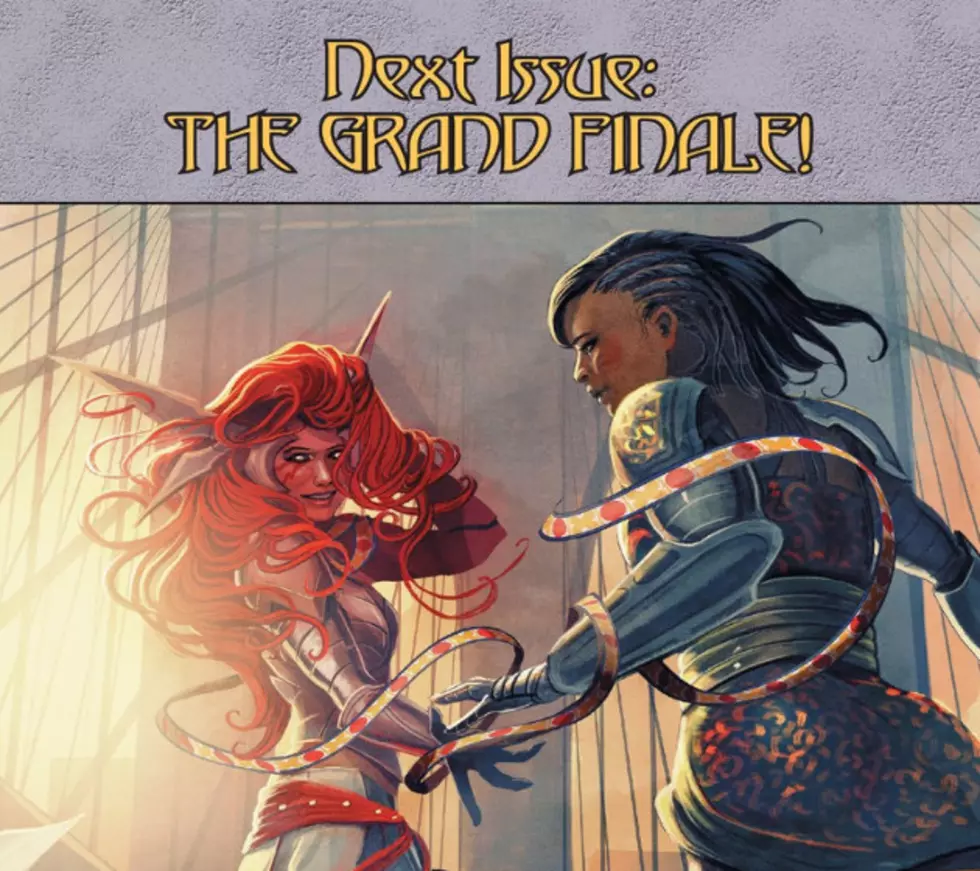
On the Barriers to Diverse Comics in the Direct Market
Over the past week there's been much discussion in the comics sphere about how books that have risen to the challenge of greater diversity have not in turn risen up the charts of the direct market. A debate is taking place over whether the audience is really putting its money where its mouth is, and this debate is more complex than a yes or a no, and requires a little unpacking.
Adam Frey at Pop Culture Uncovered has one take, asking if the failure of diverse books is a responsibility that ultimately rests with the market. Personally, I think a better question to ask when speculating if the market itself has failed is, “which market?”
In comics, there’s more than one market. The first customer for any direct market comic is the comic shop owner, distinct from the readership (though they can of course be a part of the readership). The shop owner is buying stock that is in most cases explicitly non-returnable, meaning every purchase is a roll of the dice. The worst that can happen if a customer makes a bad purchase is that they’re out some money and wind up upset or angry; if a shop makes a bad purchase, it can mean the business going bust. (This is why every shop I’ve been in has had a bleak sort of gallows humor about ordering out of Previews.)
Now, the readership --- the next link in the chain --- can request pre-orders from retailers. This involves taking a chance on a book that no-one has seen and that no one can attest to the quality of, and doing extra legwork that someone who just orders the most popular books doesn’t have to take. A lot of readers, when faced with this extra chore, will go “nah.” Any opportunity for a customer to not spend money is an opportunity that some of them are going to take.
Combined, all of this means that the economics of the direct market trend conservative. Not conservative as in “worried that Diamond’s army of gay illegal immigrants is coming for their guns” (although it depends on the shop, I guess) but conservative as in generally slow to change. The diversity push, being all about change, is going to be opposed by this not out of malice, but out of simple inertia.
(There are other sales markets that can be factored into this discussion, in digital and bookstore sales. However, digital sales numbers are closely guarded, so it's difficult to gauge their impact, and the Western comics section of bookstores is mostly collections of stories that have already been tried and tested in the direct market. Comic stores remain the determinative market.)
That’s just the act of buying a comic in the direct market. Knowing that there is a comic to buy --- the marketing angle --- ties into the next type of market, the untapped market. These are the people who would be interested in diverse comics if they knew how to get into them; people who tend to be less male, less white, and more queer. Tapping this market is not only a moral calling, but good business sense. These readers are a growth area.
I recently wrote an article that was in part about how Marvel’s dippy PR --- and talking out of both sides of their mouth on queer issues --- served as a barrier for my realization that there was a very queer and transgender friendly comic being published by the company. I pay a lot of attention to comics, yet Angela: Queen of Hel was still something I nearly missed out on. How are the gay adventures of Angela and Sera supposed to reach any potential reader who’s not already hugely invested in comics?
Someone who doesn’t regularly read comics has next to no means of finding out about a comic they might be into, yet these people are the market that the industry needs to tap. The remarkable thing about the televised push for DC’s new 52 is that it happened at all. Otherwise, comics advertising is all but entirely confined to comics websites, based on the premise that, “Well, that’s where people who are interested in comics will go, so that’s where the dollars are best spent.”
There's also a question about whether the logic of markets, always driving towards the lowest common denominator, is inherently hostile to diversity. If there are more straight people than queer people, logic says “market to straight people.” If men have more economic buying power than women, men will exert more economic power without even trying. If people of color are more willing to read books with white characters than the other way around, the incentives tilt towards more white characters. This explains not only comics, but mass entertainment in Western media in general.
None of these pressures are morally right, but the company that chooses to be morally right and financially bankrupt will be overtaken by the company that’s the other way around. And yes, marginalized creators and readers manage to carve out their own niches regardless, but a niche by definition isn’t market dominance, especially in an industry where the most popular properties get regular relaunches to try to stave off the downward sales trend that hits most books after issue #1.
So taken all together, every component in this chain acts in rational self-interest, and the end result is a closed ecosystem that’s resistant to change and growth, even if said change and growth is financially prudent in the long run, as well as morally good. The readership, if it comes into the equation at all, is coming in despite a whirlwind of obstacles, and faces a selection predisposed towards the status quo that will require hard work to change.
It’s possible for a system to be steered beyond insular self-destructive closure and towards a more diverse and open ecology, but the key word is steered --- it won’t find its way there on its own. The readers may row the boat, but they don’t steer the ship. If there are any individuals who have an outsized effect on the state of diverse comics, they are the executives at Diamond, at Marvel, at DC, at Amazon and Comixology.
These executives all have more data, more institutional support, a bigger bullhorn to the media and more power in the marketplace than their readers. They can take a look at the bigger picture. They decide what books get greenlit, and they set the terms for how shops order them, and who knows about them. They can use this power to remove barriers that prevent diverse comics from finding their audience --- if they want to.
This is why advocacy --- voting with one’s voice in addition to one’s dollars --- is so important. Advocacy, and a culture that allows it to flourish, convinces people to take a chance on something outside of their comfort zone. It puts pressure on those with power to do whatever they can to make sure that, when people do venture out in their metaphorical ships, there are fewer rocks and storms telling them to turn back, and more lighthouses to guide the way.
More From ComicsAlliance

![Bring on the Spam Musubi: The State of Asian Representation in Comics [Roundtable]](http://townsquare.media/site/622/files/2016/05/CA-khans-Alphona-feat.jpeg?w=980&q=75)







